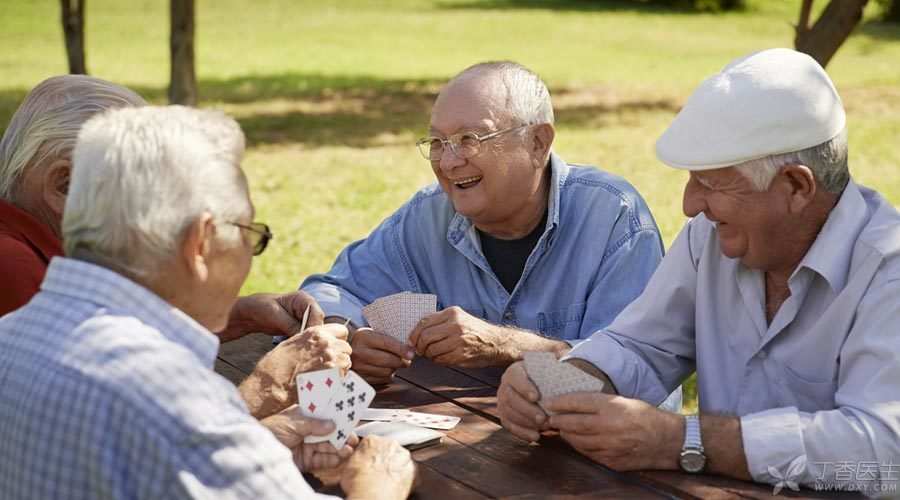
Entering old age, it seems that one should enter the most comfortable period of life, a period of enjoying life after a hard life. Chinese tradition also reinforces such scenes: the comfortable old man happily enjoys the life of full children and grandchildren and the happy family.
However, the reality is always not as perfect as the ideal. As one grows older, one’s physical functions age, and one’s psychological distress is not reduced simply because of the so-called “rich experience, ability to see all one’s life and open-minded ability to see the world”, but can be so easily [put down].
On the one hand, these troubles come from the recognition of their own current situation; On the other hand, they come from the maladaptation to the change of social roles. At the same time, the adaptation and adjustment of physical health, psychological needs, family and interpersonal relationships and other aspects also affect the psychological state of the elderly.
Emotional characteristics of the elderly
Children may realize that as they get older, their parents’ mood swings become stronger and more lasting than usual. Once their emotions are stimulated, it takes longer to recover. This is related to the physiological changes in their nerve center system.
Apart from the natural aging of physiology, the change of social roles and the reduction of interpersonal communication, it is also easier for the elderly to have negative emotions.
Loneliness and loss are not uncommon among the elderly. Emotional instability, complaining, unhappy, difficult to accept new things and stubborn personality are all common manifestations.

Why are there these problems?
The main changes in the lives of the elderly come from retirement, [empty nest] and loss of social roles.
Changes in working conditions
The meaning of retirement to the elderly varies from person to person.
For most people who have worked hard all their lives, retirement is a long-awaited relaxation and release. It allows them to put aside their busy work and pressure and take more leisure time to finish things that they did not have the time and energy to do before. For these old friends, retirement is a new beginning of a new life.
However, some elderly people will feel frustrated by retirement. Work is of great significance to them, and retirement ends an important part of life. This may cause emotional uneasiness.
However, after most elderly people retire, interpersonal communication and social contact will usually be greatly reduced. If the focus and content of life cannot be changed quickly, it is more likely to cause depression and even illness.
Family [Empty Nest]
When children grow up and leave their families or their hometown, the elderly will feel less accompanied and lack of spiritual care, thus suffering from being left out and forgotten. Old people who lose their partners and live alone are more likely to suffer from this situation.
Another point is that when children are young, the center of life for many couples is to take care of their children. Raising children has become the key to maintaining their marriage life, and the marriage relationship between the two parties can be reconciled instead. After the children leave as adults, the marriage relationship is also challenged. It is increasingly important for both couples to readjust and adjust and learn how to get along.
Lack of one’s own role
Widow, Lack of Role in Marriage Life; Children are far away and the role of parents is diluted. Retirement, retirement of social roles… The change of position and status in family and society will make the elderly anxious and even lost.
If you adapt properly, you can happily continue to exert your surplus heat and enjoy life. However, if it is difficult to adapt for a while, depression may occur and you will lose interest in life seriously.
How to adjust psychology?
Physical function drops, energy is insufficient, thinking and movement ability all decline… Will this be the case in old age?
No! These worries may only be a psychological set.
In old age, you can still grow. The weakness you experience is only part of natural aging. Aging is also a change, but change does not mean decline. Many studies have confirmed that some meaningful family or social activities have a very positive and positive impact on the body and mind of the elderly.

1. Remaining active
Stay enthusiastic about life, plan your social life and schedule after retirement, actively contact with new things and maintain curiosity.
Step 2 Enrich your life
Carry out activities beneficial to physical and mental health, eat and live regularly, and do proper housework. Looking for new fun in life, and willing to devote time and energy to it.
Step 3 Stay social
Some people are very busy after retirement, but they still feel lonely, because they fill their time with short or lack of interpersonal activities and have no chance to meet new friends and consolidate their friendship with old friends.
STEP 4 Find Fun
Try interactive games such as bridge, mahjong and table games. Because of the need to use memory and strategy, Keep your mind agile. Travel, You can go far and near. When you have time, you can visit more local cultural landscapes and exotic natural scenery. Then you can consider writing, painting, photographing and recording your experiences. Attend interesting courses, dance, flower arrangement, embroidery, tea ceremony and musical instruments. Learning is not only a matter for young people, but also makes new friends in the process.
Step 5: Take on the job
The energy and physical strength may not be as good as before, but the experience is rich and can still make contributions. Community volunteers, part-time or temporary jobs within their capabilities, not only add an additional income, but also, more importantly, still have opportunities to contact with the society and continue to realize their self-worth.
STEP 6 Record the past
Autobiography has never been the patent of celebrities. Memoirs, genealogies or family history are precious gifts for family and friends. It is also a journey of self-exploration and self-rediscovery. Writing, audio and video recordings are all right to review one’s past.
STEP 7 Understanding Disease
Scientifically understand chronic diseases and correctly understand one’s own body. Active treatment and reasonable control should also relax one’s mind and not worry too much.

As I get older, I have entered a new stage in my life, but this stage is not a downhill road. After going well, there is still the possibility of enriching my life, improving my skills, and continuing to realize my dreams and expectations.
May the readers and friends of the health headlines have a sense of security, hope, happiness and gain.
